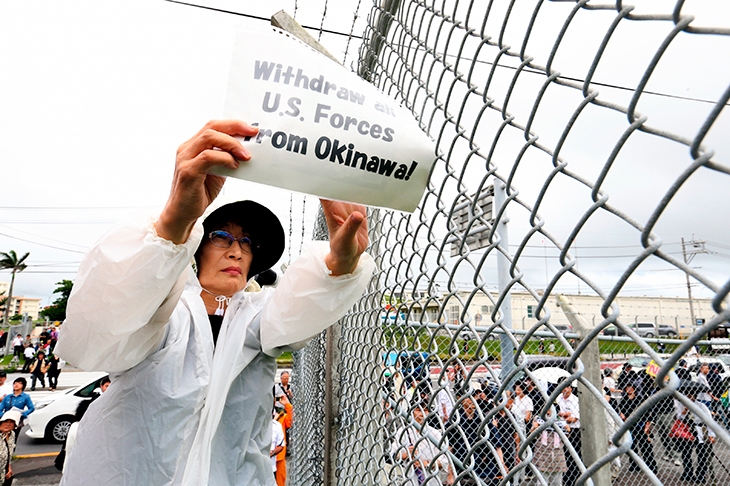Okinawa is having a moment. Recently a Telegraph travel destination, to many in the west it’s still unfamiliar except as a location of the Pacific theatre. To Elizabeth Miki Brina, the author of Speak, Okinawa, it was also unfamiliar until she was 34 — though her own mother is Okinawan, and she had spent time there as a child. Not until the break up of a relationship which played out the toxicities of her own family relations did she attempt to unravel her mother’s heritage: Okinawa’s brutal history, not Japanese, yet owned by, and at the mercy, of Japan; its persecution by America; its current state of suffering and her father’s role in that, as part of the US occupying forces that still run it as a garrison island.
Brina’s mother is working in a nightclub next to one of the 40 American military bases on this small tropical island when she meets Brina’s father. Their daughter asks: ‘Is love possible in a place like this, in a situation like this, between two people from separate worlds, on opposite sides of war and conquest?’ Much of the book is concerned with answering this question.
There is a self-loathing guilt, the legacy of internalised racism, that cuts a seam through the story: an extended apology to a mother Brina never understood, who does not speak the same language and who has different cultural values. Brina grows up in Fairport, a suburb of Rochester, New York, firmly in her father’s world and he, a kindly PTSD sufferer with a hero complex, maintains a rigid balance of power. Meanwhile, her mother, unable to fit in, alienated even from her own daughter, gets blind drunk and sobs on the phone to the people she has left behind.
In clear, unfettered prose Brina rediscovers the history and culture of Okinawa that belong to her: memories that ‘stay in our bodies, regardless of whether we actually lived through them’. She explores the island from its poetic origins, speaking of what ‘we’ did, what happened to ‘us’, in interspersed chapters.
Starting with the third-world poverty of her own Okinawan family, she takes us through the island’s agony at the hands of its Japanese colonisers: how civilians, including Okinawan children, are rolled out on the front line to protect the Japanese, who abuse, kill and force them to commit suicide; how everything in Okinawa is ‘crushed and burned’, a third of the island’s population killed while the rest hide starving in caves, and the consequent ravages of the US occupation. We hear of grand-parents left to die in a hole. When ‘we’ return for their bones the Americans have built a road over it. One thousand women and girls are raped in America’s camps as land is seized at gunpoint to build more bases and store nuclear and chemical weapons.
The list of US military crimes against locals extends chillingly to the present day. Ongoing mass protest is unheeded, and Okinawa remains shrouded in the silence the title references. ‘I must admit who half of me is, where half of me comes from,’ Brina insists. ‘Inherited sin is its own form of trauma.’ Brina’s parents’ marriage is a microcosm of US foreign policy. Brina’s own psyche is one.
Can there be redemption? Healing of generational wounds? As Brina learns empathy for her mother, for her whole maternal family and for Okinawa, so her compelling memoir creates empathy in us. Speak, Okinawa sheds light in the dark, unspoken corners of bi-racial identity, the chasms of misunderstanding in America today — and the wider western world too.






Comments